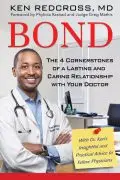
The gut, known as the body’s second brain, has an impact on all areas of a person’s health and when it is compromised, immunity, stress response, sleep, mood and hormones can all take a hit. Having a healthy gut also affects your mental health, weight, blood sugar and liver. Dr. Ken Redcross says your gut relies on the precise right balance of different bacteria to digest your food and to prevent infection and inflammation. He joins us today to explain how having the right synergy between both a pre and probiotic can provide a health advantage especially during spring allergy season.
Talking Points:
Dr. Redcross shares how:
- Prebiotics can act as food for healthy gut bacteria;
- Probiotics come preloaded with good bacteria; and
- The right synergy between both pre and probiotics gives you a health advantage.
Dr. Redcross talks about the best foods for your gut, including:
- Bananas: supply your gut with inulin, a type of fiber that helps good bacteria grow.
- Sauerkraut: or any fermented foods such as yogurt, kefir, kimchi, kombucha provides a source of live probiotics. Fermenting is a method of preserving foods with bacteria and yeast.
- Greens: including any leafy green veggies help because they are high in fiber and a special carb, both of which feed helpful gut bacteria.
- Green Tea: polyphenols in green tea may help fight “bad” bacteria like E. coli and calm symptoms of inflammatory bowel disease (IBD) and peptic ulcers. Polyphenols can also promote the growth of good gut bacteria.
And Dr. Redcross provides a list of the worst foods for your gut, including:
- Red Meat: can trigger the growth of gut bacteria that lead to clogged arteries (If you can’t give up beef, pork, and lamb completely, choose leaner cuts with names that include round, loin, or sirloin).
- Fried Chicken: or any fried foods should be avoided. Studies on rats show that heated oil, which soaks into the fried foods, can damage healthy gut bacteria.
- Alcohol: can disrupt the balance of bacteria in your gut and help bad bacteria grow. Moderation is key.
- Foods Treated with Antibiotics: Often, farmers treat animals with antibiotics to keep them from getting infections. Antibiotics can’t tell the difference between “good” and “bad” bacteria, so they kill them all. If you eat these animal products, you can kill the healthy bacteria in your gut. And because some bacteria become antibiotic resistant over time, meaning the drugs no longer affect it, you might end up with a hard-to-kill superbug.
Dr. Redcross has a holistic approach to boost gut health quickly, including:
- Supplementing daily with pre and probiotic combo: The use of prebiotics and probiotics together is called microbiome therapy. You don’t need to take a prebiotic for probiotics to work, but taking them together might make your probiotics more effective (plus it’s more convenient if you aren’t eating the right prebiotic and probiotic foods each day).
- Regular exercise: Studies suggest that exercise can enhance the number of beneficial microbial species, enrich the microflora diversity, and improve the development of commensal bacteria.
- Practicing yoga: can help by decreasing stress, increasing circulation, and promoting gut motility.
- Getting plenty of shuteye: studies show that sleep deprivation leads to changes in gut microbiome composition.
With the spring season in full swing, gut health is especially crucial for allergy sufferers. According to a study released by the National Institutes of Health, a lack of diversity in the gut microbiota is associated with all types of allergies, especially seasonal and/or nut allergies.
Learn more about gut health at www.probiotics.com
Watch Dr. Redcross and Mark here:




